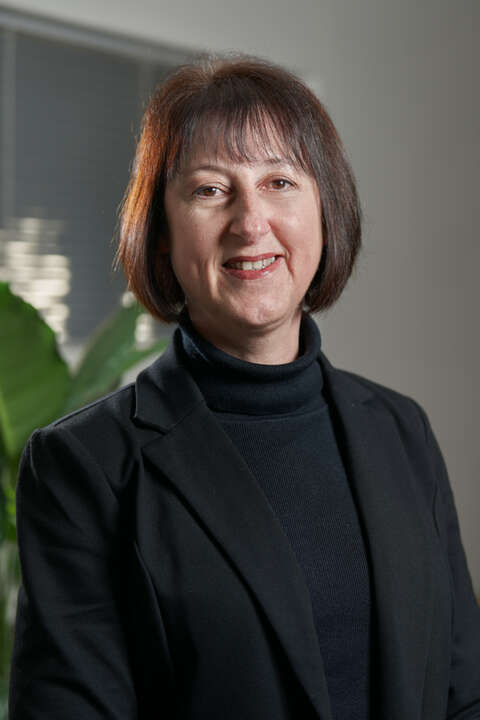Stellenbosch's university venture fund, the first of its kind in Africa, has been a “huge paradigm shift" in the ecosystem.

Tech transfer offices like to select the cream of the crop for their spinouts, but usually, their work doesn’t involve looking after cows. Yet that used to be the case for the Innovation and Commercialisation division of Stellenbosch University in South Africa. Anita Nel, chief director of innovation and business development, jokes that she is still persona non-grata in the Faculty of Agriculture because the 120 cows were “just bleeding money” and she made the call to end that activity.
The unusual responsibility illustrates that this is a tech transfer office that is open to trying new things. So, it is perhaps no surprise that Stellenbosch launched the first African university venture fund focused solely on spinouts in 2020. Stellenbosch found a willing partner in the nearby University of Cape Town, although the fund, University Technology Fund (UTF), has also invested in spinouts from other universities, such as the University of the Western Cape.
The fund raised R230m ($12.6m) from Stellenbosch and Cape Town universities, public-private partnership SA SME Fund, investment management firm Tamela, and public bodies Technology Innovation Agency and Small Enterprise Funding Agency.
A lack of corporate VCs puts the onus on universities

Stellenbosch University has 32 active spinouts, which may not sound like a lot by international standards, but the institution is one of the main patent filers in the country, Nel says, and the focus on spinouts began only around 10 to 15 years ago.
By 2020, there was a real need for the UTF to fill a gap that local corporates weren’t able to fill. “Industry in our country is not that well developed that they can take up the university’s new innovations or that they want to invest in such early-stage technologies,” Nel says on a recent episode of the Beyond the Breakthrough podcast. “Our strategy was more to ring-fence these innovations in a spinout company and get funding so that you can then further develop it. Then you can either service the global market or hopefully get sold for quite a large amount of money.”
Corporates in other countries that might be interested in licensing technologies are a double-edged sword, Nel adds. If the university did that, “then all the value is basically created offshore” she says, including “all the employment”.
Spinouts from the university span a large array of sectors, such as nanofiber producer SNC (with applications in everything from the medical cosmetic to carbon capture industries); SharkSafe, which has developed a kelp-based barrier to keep sharks from swimming near beaches without harming the animals; and Phagoflux, which has developed sensor technology to monitor autophagy (the self-cleaning process of cells, with dysfunction common in diseases like diabetes and cancer). Phagoflux had to go all the way to Germany for a corporate partner as there are no pharmaceutical firms in Africa.
A changing VC landscape
It isn’t just UTF money that has tipped the scales in favour of spinouts. The fact that there is now specific money available has led to an increase in spinout activity as more and more researchers realise there’s a real opportunity, Nel says.
The venture capital landscape has also grown, says Brandon Paschal, deputy director of spinout companies and funds, who leads the incubator. “I think there’s more investors, period, and more diverse investors, period,” he says. There were only a handful of VC firms until the late 2000s, but “it’s exploded substantially since then” and the industry is no longer dominated solely by white men. “You’re seeing lots of women, lots of not-white women leading funds,” Paschal adds. Indeed, one of the investors in the UTF, Tamela, is a black-owned firm.

A university incubator increasingly focused on spinouts

Many of Stellenbosch’s spinouts are supported by the university incubator LaunchLab, which is also open to student startups and alumni-founded companies so long as they fit into deep tech verticals such as “agriculture, health, green tech [like] energy, renewables, waste management,” says Paschal.
The LaunchLab was set up in 2015 and has grown considerably since then. Last year, incubator portfolio companies generated R650m in revenue. Investment raised by LaunchLab-incubated companies has reached more than R700m.
The UTF has dramatically shifted where the money is going, although the LaunchLab also abandoned its earlier attempts to be an incubator for every technology even where the university had no expertise, like fintech. Spinouts may not have an obvious way to generate a return as they aren’t “as sexy as a food delivery app,” Paschal quips. Before the UTF was created, only 22% of the money raised by LaunchLab portfolio companies went to these university research-based companies. But since 2020, “68% of the investment into companies we’ve incubated was into Stellenbosch University spinouts,” Paschal says.
A second fund
The success of the first University Technology Fund means Stellenbosch has been preparing a second one, with a few key differences. The first UTF operated across four stages – grants for pre-seed spinouts, a first seed round for technology development and pre-commercialisation support, a second seed stage for the first formal VC investment and series A rounds. “We had a few companies moving through all four stages,” Nel says, which “showed the model worked, but it was an experimental model”.
The University Technology Fund 2 will not have these first two stages and will focus purely on commercial opportunities rather than trying to get spinouts ready for equity investment. Stellenbosch University has allocated funding to replace the grant funding from the first UTF. It was “a huge paradigm shift in the university,” Nel says, as it realised that spinouts were an opportunity worth pursuing. The fund will also invest nationally, although other universities were hesitant at first to sign up and Nel recalls she initially “felt very lonely at meetings when I spoke”. Thankfully, that changed eventually.
Stellenbosch is also building a lab in its incubator to allow spinouts to undertake commercial research outside of the immediate university setting, where “the academic project always wins”, Nel says. She concludes: “I think it will add tremendously to the work that’s happening.”









